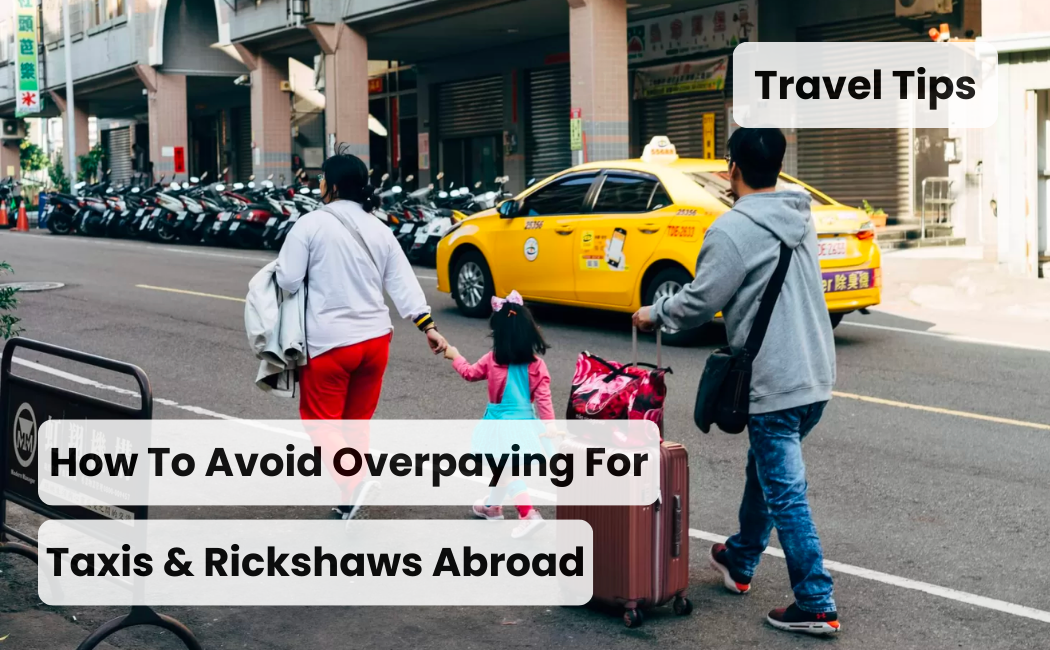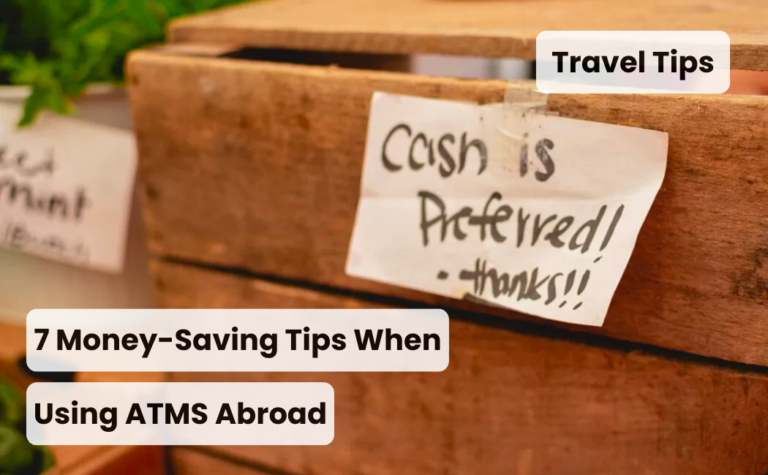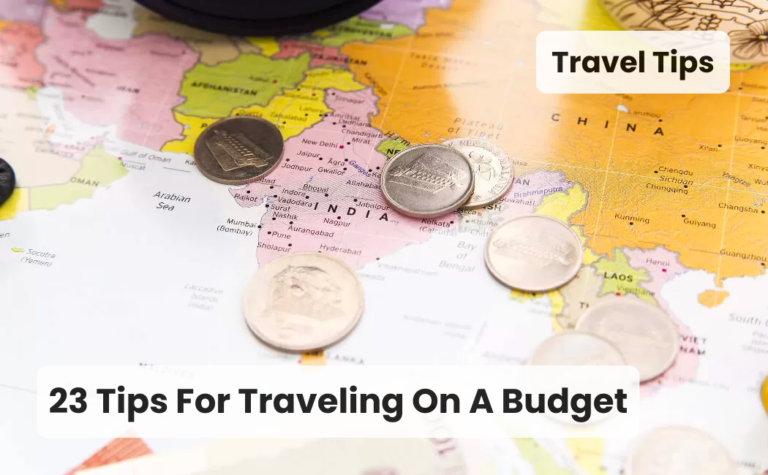How To Avoid Overpaying For Taxis And Rickshaws Abroad
Whether it’s a short holiday or a long backpacking trip, you will inevitably have to take a taxi or rickshaw at one point. Wherever you are as a tourist, there is always the worry that you are overpaying for taxis and getting ripped off.
For those who want to avoid overpaying for their journey, this post will detail the best tips to make sure you are getting a fair price when travelling abroad.
This post may contain affiliate links. This means that I earn a small commission if you purchase through a link on my site. Don’t worry, this is at no extra cost to you.
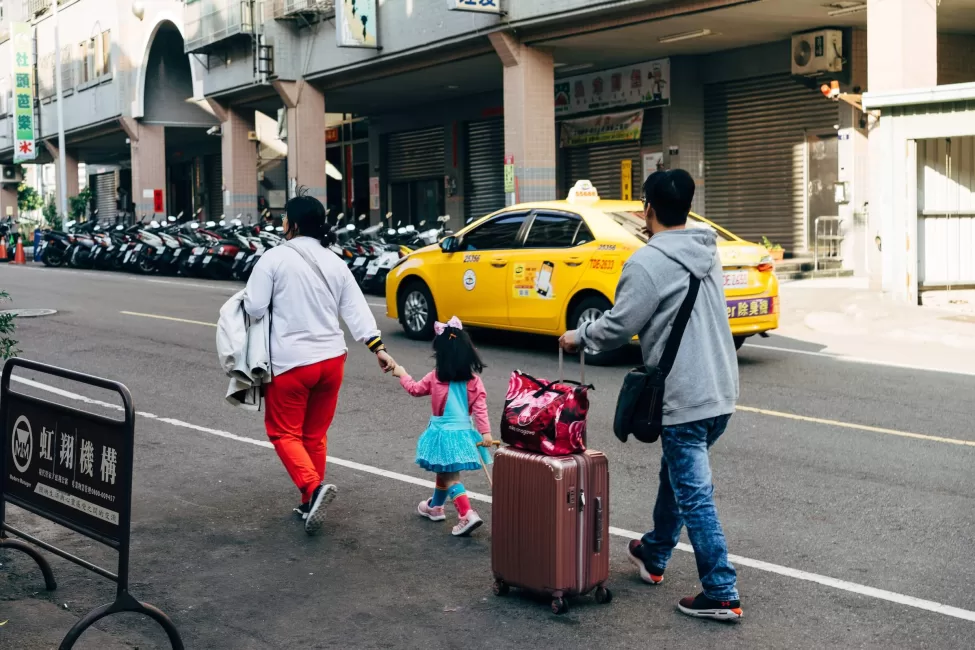
As tourists, we’ve all been there. Overpaying for taxis and getting ripped off is all part of the travelling experience, wherever you are in the world.
Taxi and rickshaw drivers abroad don’t have the best reputation. They are notorious for taking advantage of clueless tourists and hiking up their prices.
That is not to say that all taxi drivers are the same and many will offer you an honest price for a journey.
In my experience, taxi drivers are some of the most hardworking but underpaid people out there, so who can blame them for trying their luck sometimes?
As a tourist, I always expect to be charged more than a local and overpaying is normal. The tips in this post are not about being stingy but about trying to get the fairest price you can as a tourist.
This post will detail the best tips to avoid overpaying for taxis and rickshaws abroad, to take you from a clueless tourist to a (slightly more) knowledgeable tourist.
Do your research
One of the best ways to avoid overpaying and being ripped off is to do your own research beforehand.
Know the location and roughly how long it takes to get there. Look up common taxi scams in the place you are visiting and what the most reputable companies are.
You can even ask around to try and gauge the average price. A bit of healthy competition between taxi drivers is good for haggling.
Use your judgment when considering whether it’s a fair price. If it seems too expensive and like you are being ripped off, then you probably are.
Be sure to download an offline GPS app so you can pinpoint the location beforehand. Keep an eye on this when you’re in the taxi, to ensure that the driver does not take a longer scenic route.
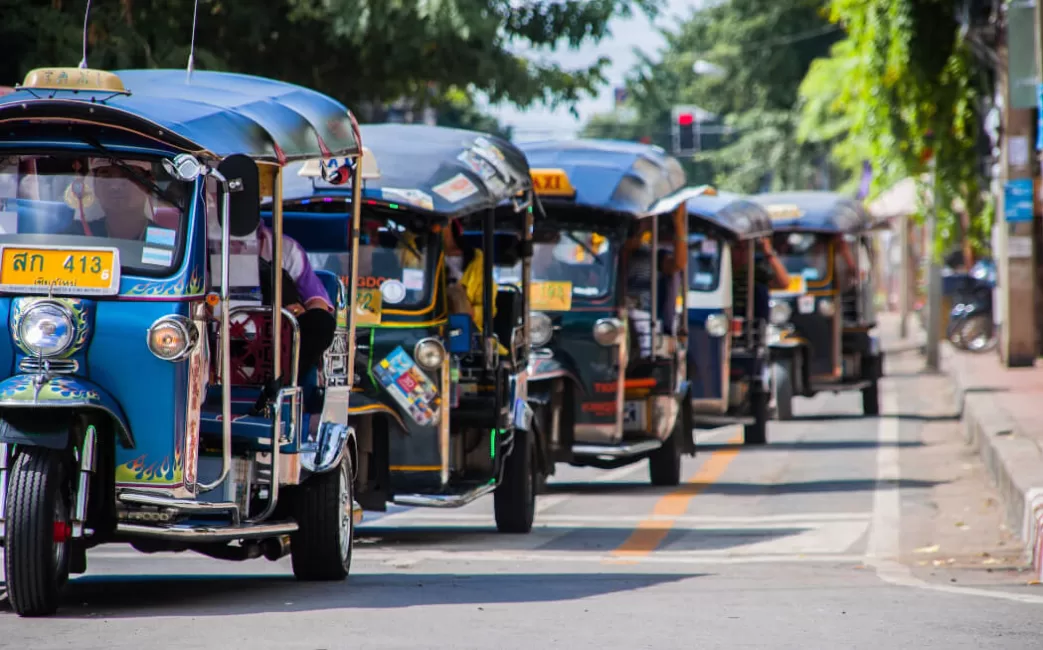
Avoid taking a taxi right outside the airport or station
If you want to avoid overpaying for taxis or rickshaws, then try to avoid taking a taxi right outside the airport, port, or station. The prices are always much higher than if you just walk down the road a little.
After your journey, you’re probably tired and the last thing you want to do is lug around your bag or suitcase. It’s therefore easy to accept the first price taxi drivers give.
However, if you’ve got the energy, walking a few minutes away from the station and hailing a taxi there is usually much cheaper.
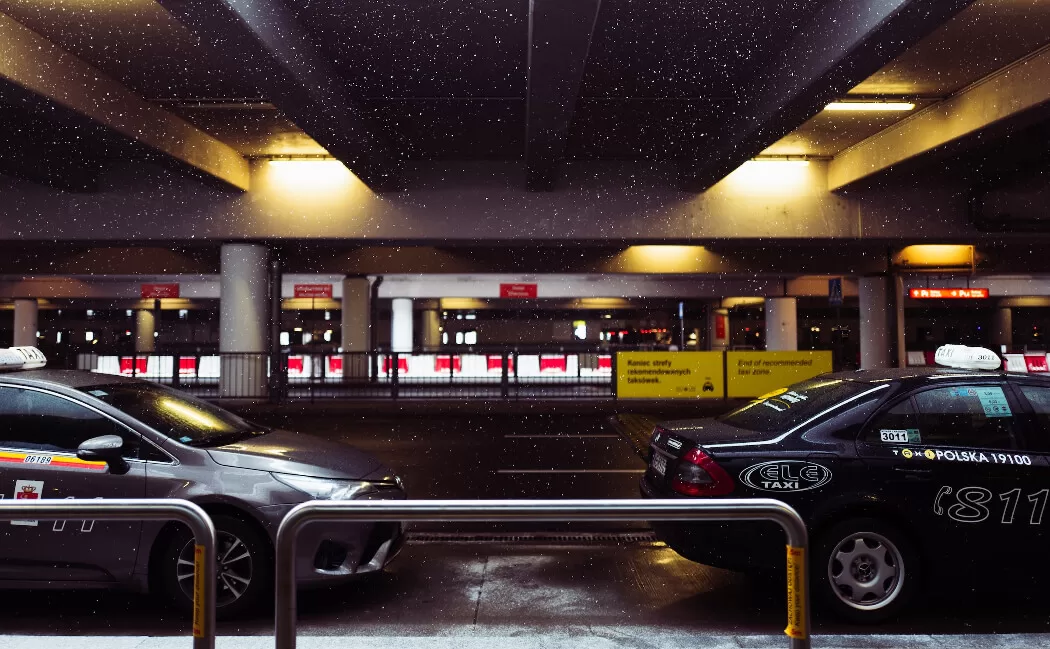
Be firm and start walking away
If you’ve been haggling with a taxi driver over an unfair price and they refuse to drop it, then a great tip is to be firm and start walking away.
Taxi drivers are reliant on you accepting an unfair price because you have no other choice. Maybe you don’t, but they don’t need to know that. My favourite line is “I would rather walk 2 hours in the rain than pay that price”.
Stick to your guns and call their bluff. Start walking away to find another taxi or pretend you are going to walk. When they realise you are not compromising, then they usually drop their price.
Find people going in the same direction to split with
One of the best tips to avoid overpaying for taxis is to find other people going in the same direction. You can split the fare between you to save yourselves some money.
This is an especially great tip for solo travellers.
Ask around at the station to see if you can find other people going in the same direction. This is not only cheaper and safer, but you might make some new friends out of it too.
Use local apps
If you want to avoid being ripped off by taxi drivers, then try to use local apps such as Uber, Ola, Grab, or Bolt. As a third- party determines the prices, they are usually a truer reflection of the price.
Even if you’d prefer not to use one of these apps, they are great to check and gauge the average price for a journey. This way, you know the average price based on the distance and know that you are not overpaying.
Each country has different apps they use, so do a little research beforehand to save yourself some money.
Grab Bike in Asia is a great option for solo travellers. Taking a moped with a driver is not only much cheaper than a taxi, but quicker too.
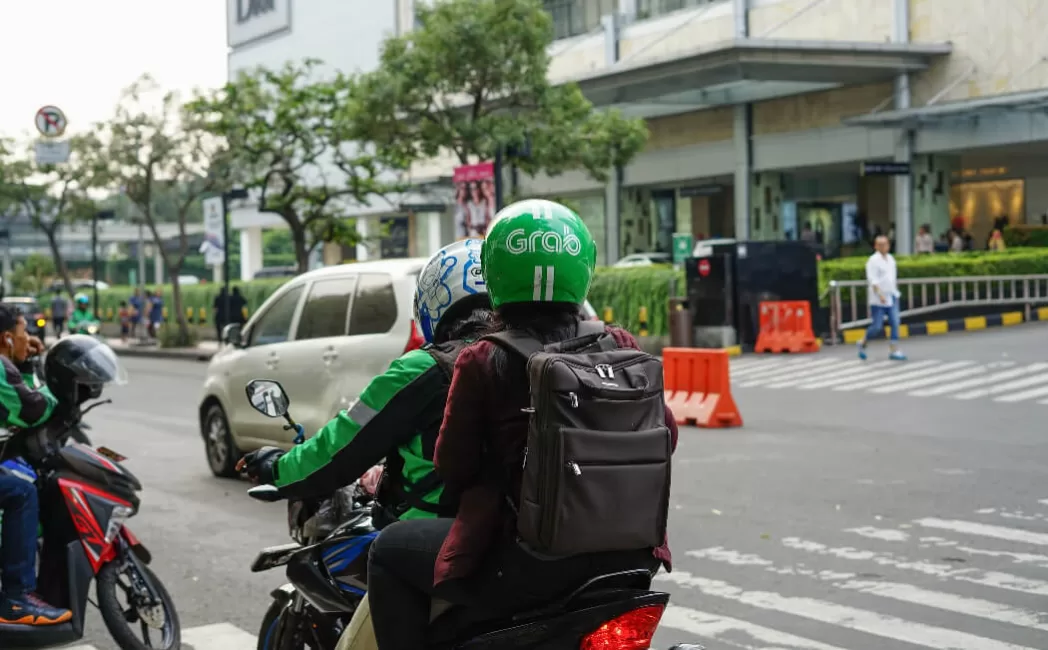
Agree on a price beforehand
This is the golden rule to avoid overpaying and being ripped off by taxi drivers. Always agree on a price before stepping foot into the car.
If you do not, then do not be surprised if the price has changed when you arrive at your destination. Do not just agree on the price, but make it crystal clear that it will be the total price for all passengers.
When I was in Colombia, we agreed on $12 for the 30-minute journey, only to arrive and for him to tell us he meant $12 per person. Leave no room for doubt when agreeing on a price.
If a taxi has a meter, insist on using it
For those who want to avoid overpaying for taxis or rickshaws abroad, insist on using the meter if there is one.
This is a great way to ensure that you are paying a fair price and not just one they make up as they go. Be sure to keep an eye on the meter to make sure there are no sudden price jumps.

Try to have near exact cash, or make sure they have change
Another great tip to save money when taking taxis is to try and have near exact cash to pay. If you only have large notes, then make sure they have change before setting off.
I have experienced this a few times when you have a larger bill and the taxi driver says they do not have any change when you arrive. This could be completely true and innocent but I’m a bit skeptical.
If you try to have near exact cash, then you will avoid overpaying if they do not have change.
Ask a local to book for you
One of the best tips to avoid overpaying for taxis or rickshaws abroad is to ask a local to call and book for you.
Understandably, the locals are charged a fraction of the price compared to tourists. Having someone help you with booking will prevent you from getting ripped off and save you some money.
In India for example, a rickshaw driver offered us a price of 1750 rupees ($21) for a journey, which we knew was extremely overpriced. We haggled him down to 1250 rupees which we were happier with.
The next day when we returned, a local booked the same journey for us for 700 rupees ($8). This shows that even though we negotiated the price down, as tourists we were still overpaying.
Of course, in these situations where you have saved money, make sure to give back and tip your driver generously.
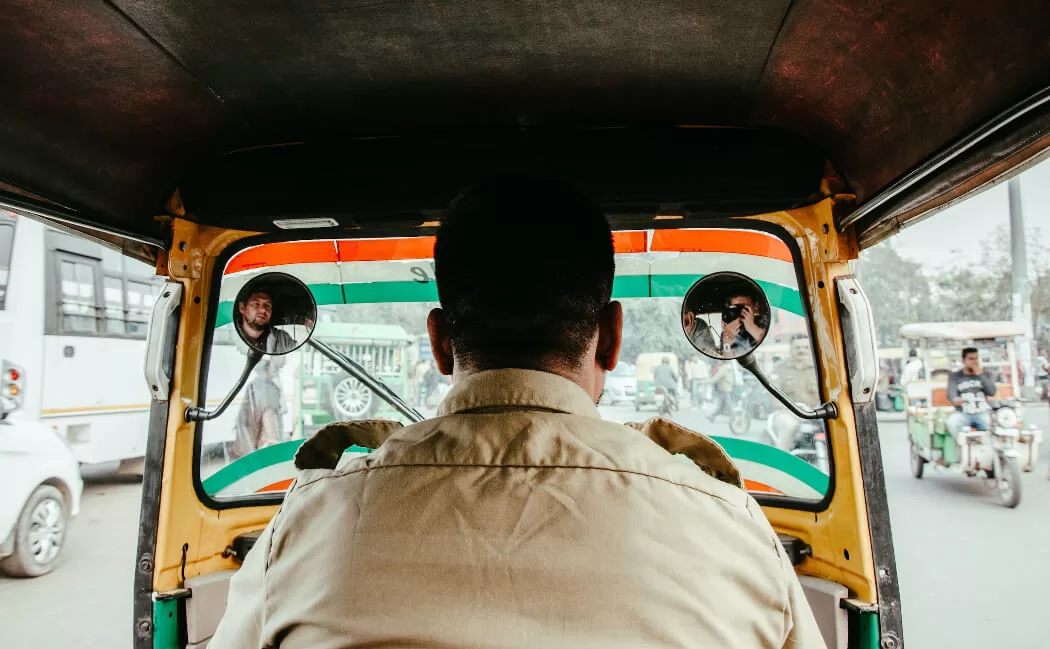
Loyalty is rewarded
This is not just a tip to avoid overpaying for taxis, but for travelling on a budget in general. If you have a taxi driver who offers you a fair price, take their number to use whilst you’re in the area.
I’ve found that most locals appreciate this loyalty and it saves you from having to negotiate the price with someone new each time.
In Munnar, India, we used the same rickshaw driver all week. On our last night, he took us to a botanical garden for free as a thank-you.
Let me make it clear, this is not about showing loyalty and expecting a discount. But, if you receive particularly good service, then stick with them and you might save some money out of it.
Final Thoughts
As I said at the beginning, these tips are not about being stingy. These tips are to avoid significantly overpaying and getting the fairest price you can as a tourist.
Taxi and rickshaw drivers earn nowhere near what they deserve for the work they do. If you save some money by using these tips, then be generous and make sure to tip your driver.
If you feel you are overpaying and being ripped off, you probably are. Trust your instincts, be understanding but not naive, and you’ll be fine.
If you liked this post and you’re interested in more money-saving tips and tricks, then feel free to check out the following –

